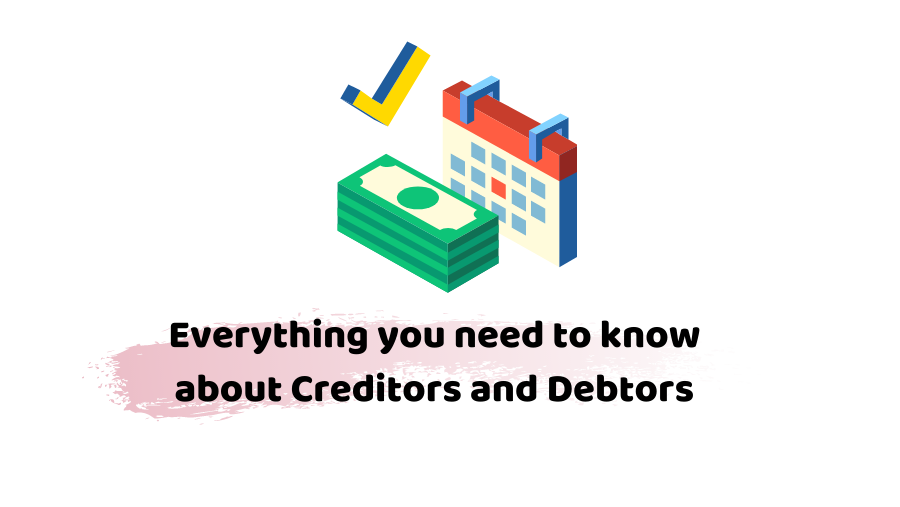The terms debtors and creditors might seem easy for you, but when it comes to their usage, these terms can be tricky to understand. If you’re a small business owner, you need to know about these terms to avoid financial problems.
Let’s start with the definition of both. For your understanding, we’ve tried to be as simple as possible.
What is a Creditor?
To be simple, a creditor is a person, business, or entity whom you will pay money for the goods or services you received. The creditor provides a loan to the debtor. If you’re a small business owner, you’d deal with two types of creditors; loan and trade creditors.
The best example of a loan creditor is a “bank”. Banks and other financial institutions are the most prominent creditors of the business world today. These provide loans to businesses to operate their business. As a result, they become creditors as those businesses need to repay that money again to them.
A creditor can also be a debtor if fulfills the below conditions.
Find out the ways to grow your business, get in touch now!
What is a Debtor?
A debtor is someone who owes you money. This means if someone has borrowed money from you or taken your goods or services, he/she would be your debtor. Likewise, if a business, individual, or entity is liable to pay someone’s money, it would be called the debtor.
Staff loans and trade debts are the common types of loans in the business world.
An example of a debtor can be a transportation company that has taken a loan from a bank to operate its business. The company would be classified as a debtor right after availing the loan from the bank and has to pay interest alongside.
Likewise, there is a staff loan provided by the employer to employees as a preference. Generally, the rate of interest on this type of loan is less than that of banks or financial institutions. On the other side, if you provide a service to the customers and you haven’t received money, your customer will be called your ‘trade debtor’.
Want to get rid of your liabilities, contact us!
Debtors and Creditors – Small Business:
If you’ve provided your goods and services as a small business and you haven’t received your payment against it. The person, business, whom you’ve provided services would be called your debtor.
In the same manner, you are the debtor to your supplier if you have taken goods for your business and haven’t paid for them yet.
As a small business, it is important to evaluate both credits and debts so that you’d able to sort out your assets and liabilities on your balance sheet and balance cash flow.
If you’re a creditor for another business, to you, it’d be considered your assets as it is the incoming money that you’ll be receiving in the future.
These are the pillars of accounting on which your business’s financial status stands.
Quick Sump Up:
Hopefully, you have understood the terms of debtors and creditors. Remember that, you can’t maintain your bookkeeping and accounting records without these terms, as you have to record transactions on a debit credit basis. That’s it, hope you’ve got what you’re looking for.
At Accotax, we have a team of certified chartered accountants in London. We ensure that our conversation would be clear and understandable to sort out the financial complexities of your business. For that purpose, we try to be as simple as possible, avoiding jargon and speak clear English. So, don’t hesitate to reach out with your financial issues.
Looking for advice on tax, accounting, business, you may get in touch with us anytime.
Disclaimer: This blog post is written to provide you the basic information on debtors and creditors.





















































